- IDP China>
- 课程库>
- 计算机科学>
- 信息技术>
- 信息系统>
- Bachelor of Advanced Computing and Bachelor of Commerce - Information Systems (Engineering)
高级计算机学士学士和商业学士(信息系统)
Bachelor of Advanced Computing and Bachelor of Commerce - Information Systems (Engineering)

学历文凭
Dual Degree

专业院系

开学时间

课程时长

课程学费

国际学生入学条件
a secondary education qualification such as the NSW Higher School Certificate (including national and international equivalents), or approved higher education study, including approved preparation courses.
TOEFL - IBT score A minimum result of 96 overall including a minimum result of 20 in Reading, Listening and Speaking and 22 in Writing
IELTS score -A minimum result of 7.0 overall and a minimum result of 6.5 in each band
TOEFL - PBT score A minimum result of 592 overall including a minimum result of 5.0 in Writing
IB Diploma - 36
International ATAR – 95
Prerequisites - From 2020, it will also apply to international students undertaking a secondary education qualification or an approved preparation or foundation program, in Australia (this includes Australian state and territory year 12 qualifications and foundation programs undertaken outside Australia).
IDP—雅思考试联合主办方

雅思考试总分
7.0
- 雅思总分:7
- 托福网考总分:96
- 托福笔试总分:592
- 其他语言考试:PTE Academic - 68
CRICOS代码: 093857C
申请截止日期: 请与IDP联系 以获取详细信息。
课程简介
Designing the digital world is big business. In the combined Bachelor of Advanced Computing and Bachelor of Commerce program you will develop your knowledge and skills in computing while cultivating business expertise. We offer practical learning combined with industry opportunities to launch your career as a leader of innovation and business transformation. Demand is increasing for professionals who understand how computing and business align to transform productivity and growth. The Bachelor of Advanced Computing is accredited by the Australian Computer Society and designed to foster your ability to work across the computing, information technology and business innovation industries. First year covers the core skills required to become an computing professional before you specialise in a major that aligns with your preferred career pathway computer science, information systems, software development or computational data science. Complementing your computing studies, the Bachelor of Commerce combines business theory with practice, giving you a solid grounding in areas such as accounting, economics and business statistics. You will be exposed to real-world business cases and experiences drawn from our wide network of Australian and international business partners. The program also allows you to tailor your degree by completing at least one commerce major. You can complete this combined degree program in five years of full-time study, after which you will graduate with two qualifications. Your skills and experience will position you at the forefront of emerging and diverse industries and a broad range of career opportunities will be open to you.<br><br>This major enables students to study the use and impact of a computing system where people and technology interact in the workplace. Information systems (IS) involve designing, implementing and evaluating computer systems that satisfy organisational needs. It encompasses topics such as systems approach, planning, requirements elicitation, system development, system implementation, and decision and knowledge systems. Rather than developing and enhancing the performance of computers, a major in Information Systems will enable you to work in a career that is client-facing, making computer systems work within the broader socio-technical context. As a part of this major, you will complete a capstone project unit allowing you the chance to apply the knowledge and skills acquired in previous units to the context of a substantial Information Systems research or development project. By working on a realistic project, you will experience the many aspects of analysing and solving information systems in different disciplines. Since Information Systems projects are often undertaken by small teams, the experience of working in a group gives students (and particularly those who often find it difficult to work effectively with others) the opportunity to further develop these skills.
相关申请
 预科
预科 奖学金
奖学金 实习机会
实习机会 在校学习
在校学习 跨境学习
跨境学习 校园授课-线上开始
校园授课-线上开始 在线/远程学习
在线/远程学习
开学时间&学费
学费信息仅供参考,请与IDP联系以获取详细信息
| 开学时间 | 时长 | 学费 | 地点 |
|---|
学校排名

世界排名60
数据源:
泰晤士高等教育世界大学排名
关于悉尼大学

位于澳大利亚首都的悉尼大学是举世闻名的机构,一直名列世界前20名大学之列(2024年QS世界大学排名)。在2022年QS毕业生就业能力排名中,悉尼大学的毕业生也位居澳大利亚第一和世界第四。来自世界各地的学生进行本科和研究生水平的学习。学生可以在澳大利亚最广泛的课程和学科中选择。该大学提供超过400个学习领域供学生选择,大学5门学科位居世界前十名,另外还有28门学科位居世界前50名(2022年QS世界大学学科排名)。通过实习和工作经验以及通过大学海外项目进行国际交换(包含在学位内的可选项目),从而增加了学生的就业机会。学生将在支持和启发的环境中学习和发展,大学会提供给学生大量的服务,这包括学术和专业支持,残疾服务,保密咨询服务,健康服务还有财务援助办公室提供服务。学生还可以参加由悉尼大学学生会(USU)运营的250多个校园俱乐部和社团,从体育运动到文化团体应有尽有。校园内有许多可供学生使用的设施,其中包括带奥林匹克规格温水游泳池的健身室和攀岩中心。此外,还有美术馆、博物馆、咖啡馆、餐厅和酒吧供学生休闲。学生还可以使用南半球最大的学术图书馆。悉尼是世界上最优秀的城市,根据《经济学人》2021年安全城市指数显示,悉尼被评为第四大最安全的居住地,当地的学生体验得以丰富和提升。
本校相关课程

Graduate Certificate in Clinical Dentistry - Advanced Restorative
学历文凭
Graduate Certificate
开学日期
课程费用总额

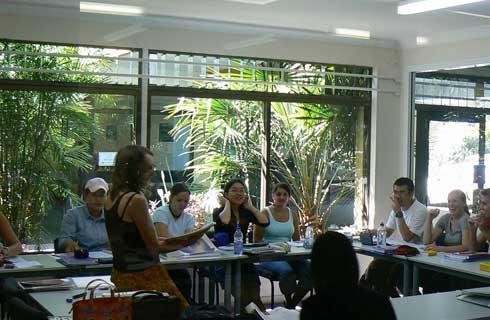
Graduate Diploma in Clinical Dentistry - Advanced Restorative
学历文凭
Graduate Diploma
开学日期
课程费用总额


城市和区域规划研究生文凭
学历文凭
Graduate Diploma
开学日期
课程费用总额


教育硕士
学历文凭
Masters Degree (Coursework)
开学日期
课程费用总额

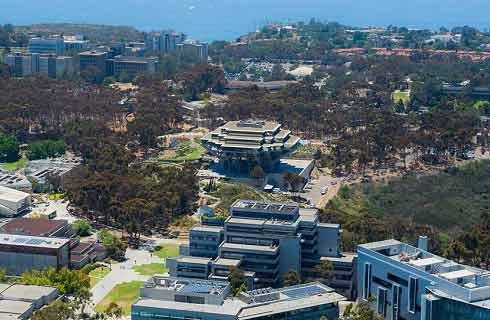
专业工程学硕士(电力)
学历文凭
Masters Degree (Coursework)
开学日期
课程费用总额

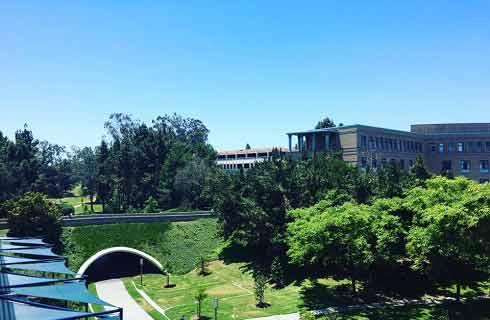
专业工程学硕士(电信)
学历文凭
Masters Degree (Coursework)
开学日期
课程费用总额

其他相关课程

商业信息系统学士(荣誉学位)
 伍伦贡大学
伍伦贡大学泰晤士高等教育世界大学排名:247
学历文凭
Bachelor Degree with Honours
开学日期
课程费用总额


空间科学技术研究生文凭-地理信息系统。
 南昆士兰大学
南昆士兰大学学历文凭
Graduate Diploma
开学日期
课程费用总额

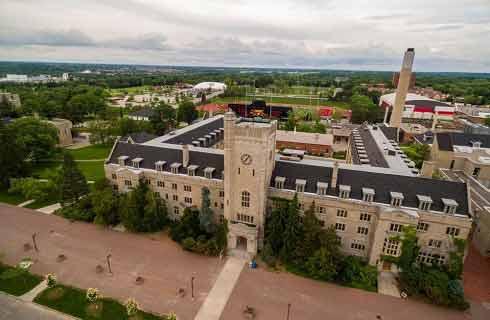
哲学博士(信息系统)
 斯威本科技大学
斯威本科技大学泰晤士高等教育世界大学排名:282
学历文凭
Ph.D.
开学日期
课程费用总额


生物信息学研究硕士
 南澳大学
南澳大学学历文凭
Masters Degree (Research)
开学日期
课程费用总额


地理信息科学研究硕士
 南澳大学
南澳大学学历文凭
Masters Degree (Research)
开学日期
课程费用总额

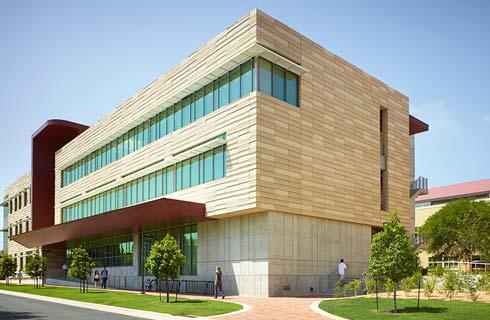
商业信息系统学士/商业学士
 斯威本科技大学
斯威本科技大学泰晤士高等教育世界大学排名:282
学历文凭
Dual Degree
开学日期
课程费用总额










